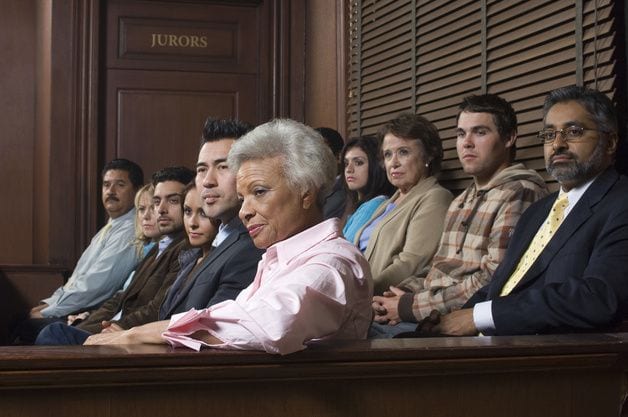
With the internet at our fingertips, it seems like people, in general, can’t hold their attention as long as they used to. Most can’t go a few seconds without pulling out their phone to check the latest updates, pics, or videos. The short attention span reality doesn’t change when someone is selected for jury duty, so it’s the attorney’s job to be as engaging as those phone notifications waiting for them when court is over. As courtroom jurors called on to decide fate, where they’re expected to sit in a jury box and listen to hours of presentation and testimony, holding their attention to key facts, is critical. And let’s be real, it’s rare any of them to want to be there, let alone take the initiative to focus on the task at hand for an extended period.
Of course, any given case is important to the people involved with it directly, but to the people coming in on the jury, it’s not really part of their world. Jurors have their own worries and life issues that don’t stop just because they were selected to be part of a case. So how do you get and keep a jury hanging on your words? General presentation tips are out there, but we want to talk about things that work particularly well when in the courtroom, especially when using trial presentation software.
Put Yourself in the Jury’s Shoes
Yes, the jury has a civic duty to listen to the facts of the case and issue a decision on the outcome, but that doesn’t mean you automatically have their undivided attention. So, what can you do to deliver the information you need the jury to hear, understand, and absorb to persuade them to agree with your argument?
Trial is all about persuasion, but it’s also a balancing act of maintaining legalities, stating the facts, not irritating the judge, and ultimately crafting a passionate compelling presentation that intricately and definitively proves your argument.
One tactic to crafting this compelling presentation is understanding where your jury is coming from in terms of the case. Representing a pharmaceutical case where the testimonies and information shared will be heavily science based may lead you to be a teacher to your jury. How do you help them understand the importance of the details and jargon without zoning out? How do you keep them engaged, informed, and interested? How do you ensure they understand without being condescending?
If you are covering a criminal case involving an accident, perhaps using a technique to engage the jury’s emotional core is the way to go. Help them relate to how the situation would impact their lives if it happened to them or a loved one. This works regardless of whether you’re prosecuting or defending.
Likeability is important. Remember jurors will start forming an opinion on you from their first interaction, so wooing them begins in the jury selection process. From the beginning, jurors will gravitate to who the better storyteller is. They will engage with who speaks their language best. They will believe who best presents the facts of the case in a way they understand. Wow them with visuals, videos, and dynamic presentations. Entertain while educating. An entertained audience is an engaged once.
Found these tips helpful? Tune in next week for the second tip in this series.
If you’re ready to take your trial presentation to the next level, read more about TrialDirector 360 here.


